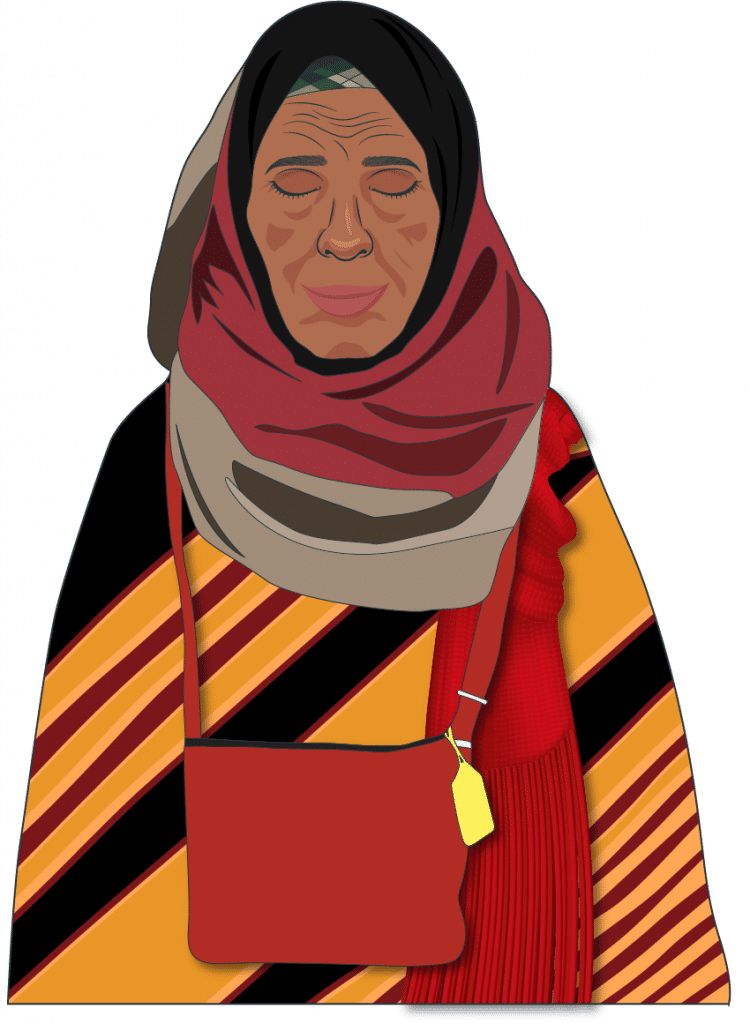It’s Eid al-Fitr, the Muslim “feast of the breaking of the fast.” To all who celebrate: Eid Mubarek.
Today and we’re pleased to share with you this poem–a young adult’s answer to an elder’s question, “What is missing (from you?)” Anisa Hagi-Mohamed read this poem at our online event, “an Evening With Louise K. Waakaa’igan” on April 8.
Each stanza’s answer to the elder’s question, Maxaa Kaa Maqan? begins with waxaa iga maqan; I am missing… This poem resounds the universal cry of all humans, to be understood and validated by our elders, especially by our parents.
About this poem, Anisa says: “Often, when the elder generation inquires about the younger generations’ mental health issues and illnesses, their first reaction is usually to ask: Maxaa kaa maqan? Meaning what is missing (from you)? Shelter, a warm bed, food, and a plethora of material, tangible possessions are ticked off of a list. Parents can’t fathom what might trouble a mind, if a stomach is full…if all the faculties of hearing, seeing, etc. are working.”
The graphic illustrations accompanying this poem are also the work of Anisa. She’s the newest member of Lyrcaility’s Leadership Team, and we’re delighted to have her on board with her many talents, much energy and enthusiasm, wisdom, kindness, and a passion for facilitating intergenerational and intercultural connection.
Tracy Rittmueller, Lyricality Founder/Director
Maxaa Kaa Maqan?
Anisa Hagi-Mohamed
Waxaa iga maqan:
peace of mind.
A respite from overthinking,
of resting at night, like others,
and entering the garden of dreams.
Instead I lie awake regretting what was before,
anxious of what is to come,
As the present continues to elude me.
Waxaa iga maqan:
a mental burden, lifted.
I carry the expectations,
of achieving dreams, unfulfilled,
of crossing boundaries, un-navigated,
attaining accolades and diplomas,
of carrying the torch of hope
with my bare hands.
of not wincing, not complaining,
As the fiery flames of this forced role
engulf me, completely,
leaving no residue of who I was,
or what I could have been.
Waxaa iqa maqan:
belonging. To feel at home,
in my own home, in my own bones.
Not too black for this crowd,
too white for the other,
too foreign for this circle,
too western for the other.
How can I identify,
when all that I identify with rejects me?
I am a nameless, faceless ghost,
longing for and seeking out,
familiar leaves,
friendly waters,
founded foundations,
something to call my own.
Waxaa iqa maqan,
acceptance.
That depression is not a myth,
A conspiracy of gaalo,
A break from tradition,
A rebellion against religion,
A coup,
Overthrowing all that you know,
Disregarding all that you do,
It’s an illness,
A dark cloud,
A swallowed pain,
A bottomless well of emptiness.
Waxaa iqa maqan:
honesty.
That you too hurt,
that in the wrinkles beneath your eyes,
and between the gaps in your teeth,
on the calluses of your palms,
that you carry pain
that traveled miles with you.
That you too, are hurting.
That bloodshed can be washed from your hands,
though not so easily from your mind.
That you feel alone,
that you feel without a home,
that you lie awake many nights,
worrying about what has been,
and what is yet to come.
That I put a name to your pain,
that I put a name to my pain,
that I put a name to our pain,
that together, we can overcome.
***
Anisa Hagi-Mohamed (Author) is a dedicated mother, wife, teacher, artist and writer. She is the author of My Diasporic Diary, a reflective journal for diaspora people. Currently Anisa is in the process of designing products and publishing books that feature and capture diasporic elements of identity, home, language and culture.

